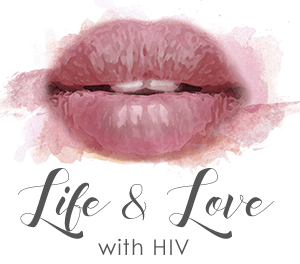
You can’t escape Destiny
March 31, 2022
Online Dating
July 30, 2023
You can’t escape Destiny
March 31, 2022
Online Dating
July 30, 20230 Comments
We Can Do Better Together
Hi there! We’re Shayda and Riley and we’re excited to tell you about our partnership on the British Columbia CARMA-CHIWOS Collaboration (BCC3) study. Shayda is a graduate student and Riley is a Community Research Associate. Together, we’re looking at whether HIV affects women’s reproductive hormones. In this blog post, we’re going to tell you about how our partnership has evolved over the past year.
But first, you might be wondering what the BCC3 study is even about! As the name suggests, it’s a partnership between two studies that you may have heard of (or even participated in!) called CARMA and CHIWOS. These studies have come together to take a holistic and women-centred approach to studying healthy aging in women living with HIV. You can read all about the BCC3 study here!
One important part of women’s healthy aging is hormone health, which includes estrogen, progesterone, and testosterone. Hormone levels can change quite a lot throughout a woman’s life depending on if she’s having her period, if she’s pregnant or breast/chestfeeding, or if she’s menopausal. Medications, stress, nutrition, exercise, and many other factors can also affect our reproductive hormones. We usually think of testosterone as a male hormone, so you may be surprised to learn that it’s important for women’s health as well! However, there is much less testosterone research in women compared to men. Some questions that we want to answer in our study are: does HIV affect testosterone levels? Is testosterone important for the health of our organs? Does it impact women’s sexual pleasure? Riley and Shayda are working together to tackle a few of these questions.
"We usually think of testosterone as a male hormone, so you may be surprised to learn that it's important for women's health as well!"
Shayda: Partnering with Riley has been such an enjoyable and interesting part of my PhD work! They say the best way to test your understanding of a topic is to share it with someone else – this couldn’t be more true. There have been several times when Riley has asked questions that tested the boundaries of my knowledge and I have to say, “I actually don’t know about that, can I look it up and get back to you?”. I also find it very helpful to brainstorm ideas with Riley to make sure that my data analysis approach is appropriate and aligned with community priorities. Finally, it has been an absolute pleasure getting to present research with Riley at knowledge translation/mobilization events. She makes sure our presentations are interesting and incorporate humor – something that is rare in research talks! My advice to other research trainees is that they should definitely consider partnering with someone with lived experience. It enriches the training experience beyond measure. If you’re a researcher who is interested in working more with community, check out this article we wrote about meaningful community collaboration in research.
"It enriches the training experience beyond measure."
Riley: I absolutely agree - excellent points Shayda. Our partnership couldn’t have happened at a better time. Since working with Shayda, I have learned so much about the relationship between hormones and testosterone, the differences between male and female hormones, how they affect my body, and the impacts of where I am at - currently perimenopausal. Over the past two years, my monthly periods have progressively gotten much more intense, more problematic, and much more extreme than I ever imagined they would be. Progressively, I have been experiencing symptoms of extreme period pain with no period, extreme bloating, extreme mood swings, and irritability. I have gained 10 pounds over the past year and every month, sometimes two weeks before my period, I get massive, like a man with a massive beer bloat gut and no waist. Usually, when my period arrives, I start to begin to feel and look more “normal”, my clothes fit again, and some of the other symptoms subside.
So, when I started to learn from Shayda in the data analysis of what was going on with my body and for women’s health in general, I felt a sense of relief that there are reasons for these conditions. I am not going crazy!! I’m sure many women can relate to what I experience, as the data reflects that I am not alone. So I am at an advantage!! Due to the research we are doing with the BCC3 study and the knowledge translation events, I can learn so much from both Shayda and the data we are collecting to then share with women in the community. Shayda is a great teacher, she has the patience and education to explain this all to me in layperson terms and then together through our partnership we can create informative presentations for women in the community, who like me, don’t have a “science” background. The ease of learning this way has been very comforting and confidence-building in both my practice as a Community Research Associate, as a woman living with HIV who is in a perimenopausal state, and as a presenter doing knowledge translation and exchange events in community in a meaningful way.
"I felt a sense of relief that there are reasons for these conditions."
Have we piqued your interest in women’s hormones? If so, stay tuned and look out for the results of the BCC3 study! We’ll be sharing all of our results on the study website (https://hivhearme.ca/) as they become available.







By posting a comment, you have read and agreed to the terms and conditions in the Privacy Statement and Community Guidelines